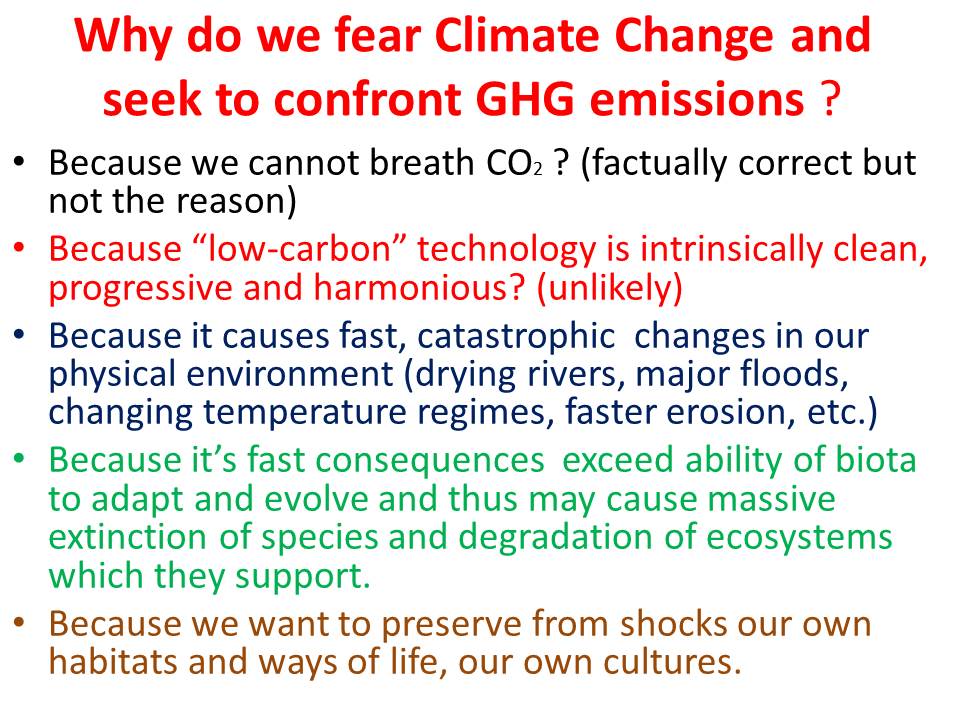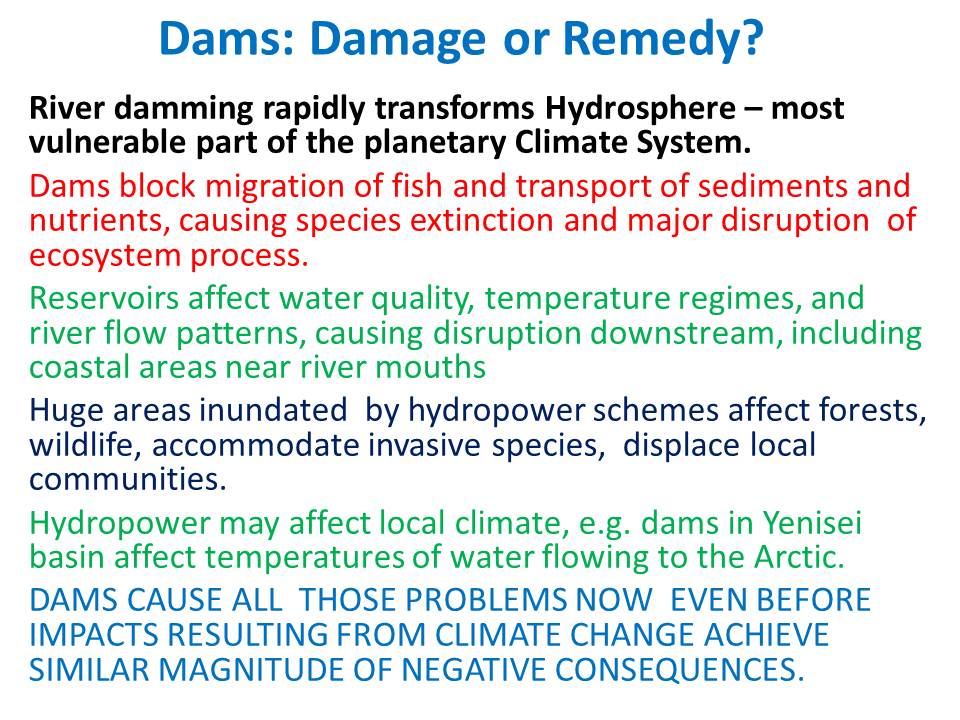

The International Day of Action for Rivers (March 14) is a day dedicated to solidarity – when diverse communities around the world come together with one voice to say that our rivers matter.. As the 22nd annual International Day of Action for Rivers. has been constrained by the spread of Covid-19 virus, still activists in several dozen countries held events to celebrate river protection.
In Russia the Rivers without Boundaries, All-Russia Civic Forum, Socio-ecological Union organized on the March 13 in Moscow a Debate on Hydropower Dams’ Role in Climate Action.
Conservationists, climate activists, scientists, and journalists will get together to celebrate different approaches to protect rivers. A dispute is intended to attract interest of the new generation of environmentalists, who grew up with “GHG Abacus” in their heads.
Eugene Simonov (RwB) summarized current global debate about dams and climate and draw attention to recent collective actions and statements such as: Statement by 250 NGOs at Hydropower Congress. May 2019 , Appeal of 300 CSOs to CBI on Hydropower Standard Dec.2019, Joint NGO Statement – Ten Priorities for the EU Taxonomy Consultation . Final report on “Taxonomy” released in March 2020 shows that, following NGO requests, standards for hydropower have been made more restrictive and strategic (e.g. stating that further fragmentation of rivers is unacceptable). Besides the “Taxonomy” says that construction of hydropower plants with capacity less than 10MW should be avoided, with is a major win of common sense.
Alexander Martynov (Interfax-ERA)discussed ways to assess environmental impacts of dams for developing of various ratingas of environmental efficiency for many companies in different sectors.
Alexnder Fedorov ( Eco-Journalist Union) described how development of dams on Lower Volga River exterminated the largest wild sturgeon fisheries, with annual loss of at least 2-3 billion dollars in caviar sales;
Askhat Kayumov presented on potential negative consequences of further dam development in Volga River valley, proposed for the sake of navigation and electricity generation.
Igor Shkradyuk (Biodiversity Conservation Center) explained how “indispensable role of hydropower” in modern energy systems is grossly exaggerated, while many vialble alternatives a readily available to replace it.
Mikhail Keyndlin (Greenpeace) shared information on dam projects threatening world Heritage properties in Russia as well as the history of failed Evenkiiskaya Hydo project, which could have exterminated the motherland of Evenki indigenous people.
Questions discussed:
Are hydropower dam’s effective means to reduce emissions and adapt to climate change?
Do we need Climate Bonds to nurture “sustainable hydro”?
Who in Russia may benefit from dams built using climate finance?
Do we still have enough natural rivers to use them for electricity production?
What should we expect in hydropower sector from recently delivered EU Taxonomy for sustainable finance? Is it OK that EU Taxonomy questions legitimacy of small hydro? Will it have practical consequences and how we can help Europeans to stop wasting money on hydro small and big?
Should we dredge rivers to allow for larger vessels or build smaller vessels to adapt to changing rivers?
Participant also discussed Krapivinsky multi-purpose dam recently proposed on Tom river in West Siberia as the only explicit large dam proposal left in Russia for the moment.
See MAP of all events on March 14 2020 https://www.internationalrivers.org/dayofactionforrivers

